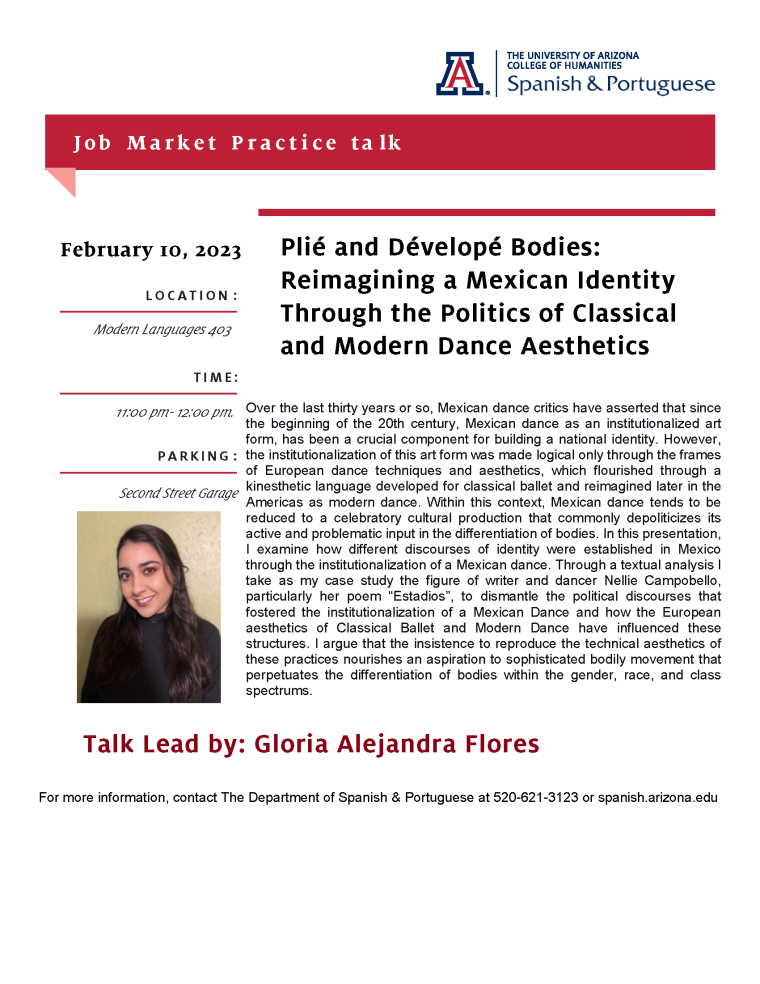Plié and Dévelopé Bodies: Reimagining a Mexican Identity Through the Politics of Classical and Modern Dance Aesthetics
Over the last thirty years or so, Mexican dance critics have asserted that since the beginning of the 20th century, Mexican dance as an institutionalized art form, has been a crucial component for building a national identity. However, the institutionalization of this art form was made logical only through the frames of European dance techniques and aesthetics, which flourished through a kinesthetic language developed for classical ballet and reimagined later in the Americas as modern dance. Within this context, Mexican dance tends to be reduced to a celebratory cultural production that commonly depoliticizes its active and problematic input in the differentiation of bodies. In this presentation, I examine how different discourses of identity were established in Mexico through the institutionalization of a Mexican dance. Through a textual analysis I take as my case study the figure of writer and dancer Nellie Campobello, particularly her poem “Estadios”, to dismantle the political discourses that fostered the institutionalization of a Mexican Dance and how the European aesthetics of Classical Ballet and Modern Dance have influenced these structures. I argue that the insistence to reproduce the technical aesthetics of these practices nourishes an aspiration to sophisticated bodily movement that perpetuates the differentiation of bodies within the gender, race, and class spectrums.


